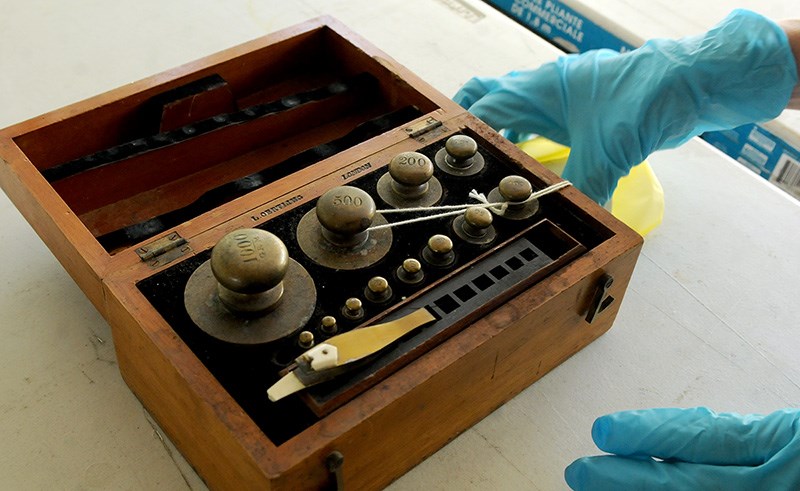They had to hurry to save history.
With the provincial government was decommissioning Riverview Hospital in 2012, a century after it opened, the city of Coquitlam and the Riverview Hospital Historical Society moved quickly to preserve hundreds of artifacts from the 244-acre site.
As part of an agreement between the society and the Provincial Health Services Authority, Victoria took the paperwork and photos for BC Archives (with the promise to return most after it had digitized them) while the city retained the hardware.
That collection was then moved into three climate-controlled storage facilities around the municipality. Now, those items are being unpacked, sorted, labelled, photographed and catalogued for the city as part of a massive inventory project with a budget of $120,000.
Last month, Port Coquitlam resident Lisa Codd and her company, Shared Solutions Inc., won the contract to try to identify and record the artifacts — some dating to before the mental health institution opened in 1913 as Essondale — with the aim to eventually conserve and display the goods in a purpose-built heritage facility.
Codd, the curator of the Burnaby Village Museum, said she intends to deliver her report to city hall by late October and will include a number of recommendations on preservation and exhibition.
In a location they asked The Tri-City News not to identify for security reasons, she and co-workers Shannon Bettles, archivist at the Chilliwack Museum and Archives, and Cheryle Harrison, a professional conservator, tag furniture, medical equipment and bottles, typewriters, bound books, looms and hair dryers, signs, kitchenware, games and other items before Codd's partner, Scott Leslie, photographs them.
It is Share Solutions' biggest project to date, she said, having recently conducted an audit for the North Vancouver Museum and Archives.
During an exclusive tour with The Tri-City News, Codd touches some pieces with gloves as she explains their significance.
There's a large wooden bench that was built for Essondale that is worn at the edge, likely due to the back-and-forth rocking of Pennington Hall patients, she said.
There are rubber stamps that doctors and staff would have used to admit patients — some involuntarily — to the hospital, which at its peak had 4,500 patients served by 2,000 employees.
And there are a turn-of-the-century set of brass weights used to measure drug powders for prescriptions as well as a wooden wheelchair with a black "TB Clinic" stamp on the back.
"Each object tells a story," Codd said. "These objects are the witness to mental health history in the province."
She and her colleagues are using old photographs of the interior and exterior of Riverview to identify the pieces. Sometimes, there is a similar object but not one that's in the collection. "It's like a treasure hunt, trying to match them up," she said.
"There's some really neat stuff," said Coun. Craig Hodge, chair of the city's Riverview Lands advisory committee. "Now that we have got this collection acquired, we need to evaluate it then preserve and display it. That will be council's goal moving forward with the new arts and culture strategic plan so we can start to show part of our past and create awareness about it."



